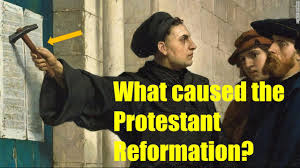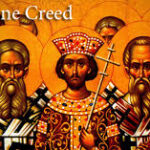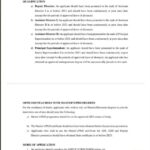By Michael Nyavi ( Sir Michael)
The Protestant Reformation was one of the most transformative events in the history of Christianity and Europe at large. Beginning in the early sixteenth century, it was a religious, political, and cultural upheaval that challenged the authority of the Roman Catholic Church and laid the foundations for modern Western society. The Reformation was not merely a theological dispute but a comprehensive movement that reshaped beliefs, institutions, and identities across Europe and beyond.
Historical Background
By the late Middle Ages, the Roman Catholic Church had become the dominant religious institution in Europe, exercising vast spiritual and political influence. However, it faced criticism for corruption, moral laxity, and the misuse of spiritual authority. Practices such as the sale of indulgences, simony, and clerical immorality fueled discontent among both laypeople and scholars. Many Christians sought a return to biblical purity and questioned the Church’s reliance on tradition and papal authority over Scripture.
Humanism, a key intellectual current of the Renaissance, also contributed to the Reformation. Thinkers such as Erasmus of Rotterdam emphasized a return to the sources (ad fontes), advocating the study of the Bible in its original languages and criticizing the excesses of the clergy. This humanist emphasis on education, literacy, and individual conscience prepared the ground for reform.
Martin Luther and the Spark of Reform
The Reformation is often traced back to Martin Luther, a German Augustinian monk and theologian. In 1517, Luther published his famous Ninety-Five Theses in Wittenberg, challenging the sale of indulgences and questioning the authority of the pope to forgive sins. His central theological claims included the doctrine of justification by faith alone (sola fide) and the authority of Scripture alone (sola scriptura) as the ultimate guide for Christian life.
Luther’s teachings quickly spread, thanks to the newly invented printing press, igniting widespread debate across Europe. Despite being excommunicated by Pope Leo X and declared an outlaw by the Holy Roman Emperor Charles V at the Diet of Worms in 1521, Luther’s ideas gained the support of several German princes. This alliance between reform and political power allowed Lutheranism to establish itself as a legitimate alternative to Catholicism.
The Spread of the Reformation
While Luther initiated the movement, the Reformation soon diversified. In Switzerland, Huldrych Zwingli led reforms in Zurich, emphasizing the authority of Scripture and rejecting practices not explicitly found in the Bible, such as the veneration of saints and the use of images in worship. Later, John Calvin in Geneva developed a more systematic theology, stressing God’s sovereignty, predestination, and the importance of discipline in the Christian community. Calvinism spread to France, the Netherlands, Scotland, and parts of Eastern Europe, deeply influencing Protestant thought.
In England, the Reformation took a distinct path. King Henry VIII, initially a staunch defender of Catholic orthodoxy, broke with Rome in the 1530s when Pope Clement VII refused to annul his marriage to Catherine of Aragon. This political dispute resulted in the formation of the Church of England, with the monarch as its supreme head. Although initially retaining many Catholic traditions, the English Reformation eventually absorbed Protestant theology, particularly during the reign of Edward VI and later through Puritan influence.
Radical reform movements also emerged, including the Anabaptists, who rejected infant baptism and advocated for a voluntary church composed of true believers. These groups faced persecution from both Catholics and other Protestants due to their perceived threat to social and political order.
Social and Political Impacts
The Protestant Reformation had profound social, political, and cultural consequences. It weakened the religious unity of Europe, leading to decades of conflict, including the Thirty Years’ War (1618–1648), one of the most destructive conflicts in European history. Yet, it also promoted religious pluralism and contributed to the gradual recognition of freedom of conscience.
Education and literacy expanded as Protestants encouraged the reading of the Bible in vernacular languages. The translation of the Bible into German by Martin Luther, English by William Tyndale, and other languages empowered ordinary believers to engage with Scripture directly. This emphasis on individual access to the Bible also nurtured democratic and participatory ideals within society.
Politically, the Reformation strengthened the power of nation-states at the expense of the papacy. Monarchs and princes who adopted Protestantism often gained greater control over religious and political life, diminishing the authority of Rome. Economically, some scholars argue that Protestant ethics, particularly Calvinist values of discipline and hard work, contributed to the development of modern capitalism, as famously proposed by Max Weber.
The Catholic Counter-Reformation
The Catholic Church responded to the Reformation with its own reform efforts, known as the Counter-Reformation. The Council of Trent (1545–1563) clarified Catholic doctrine, reformed clerical practices, and reaffirmed the authority of both Scripture and Church tradition. The rise of new religious orders, such as the Jesuits founded by Ignatius of Loyola, revitalized Catholic education and missionary work.
Conclusion
The Protestant Reformation was not a single event but a series of movements that reshaped the religious, social, and political landscape of Europe. While it fragmented Western Christianity, it also stimulated renewal, encouraged intellectual inquiry, and laid the foundations for modern ideas of freedom, individualism, and pluralism. Its legacy endures not only in Protestant denominations but also in the broader cultural and political structures of the modern world.
Bibliography
- Bainton, Roland H. Here I Stand: A Life of Martin Luther. New York: Abingdon-Cokesbury, 1950.
- Cameron, Euan. The European Reformation. Oxford: Oxford University Press, 2012.
- MacCulloch, Diarmaid. The Reformation: A History. New York: Viking, 2003.
- Gonzalez, Justo L. The Story of Christianity, Volume 2: The Reformation to the Present Day. New York: HarperOne, 2010.
- Weber, Max. The Protestant Ethic and the Spirit of Capitalism. London: Routledge, 2001 [orig. 1905].




What does the hammer signify?
Symbolizes pen (writer down)
Symbolizes pen (writer down)